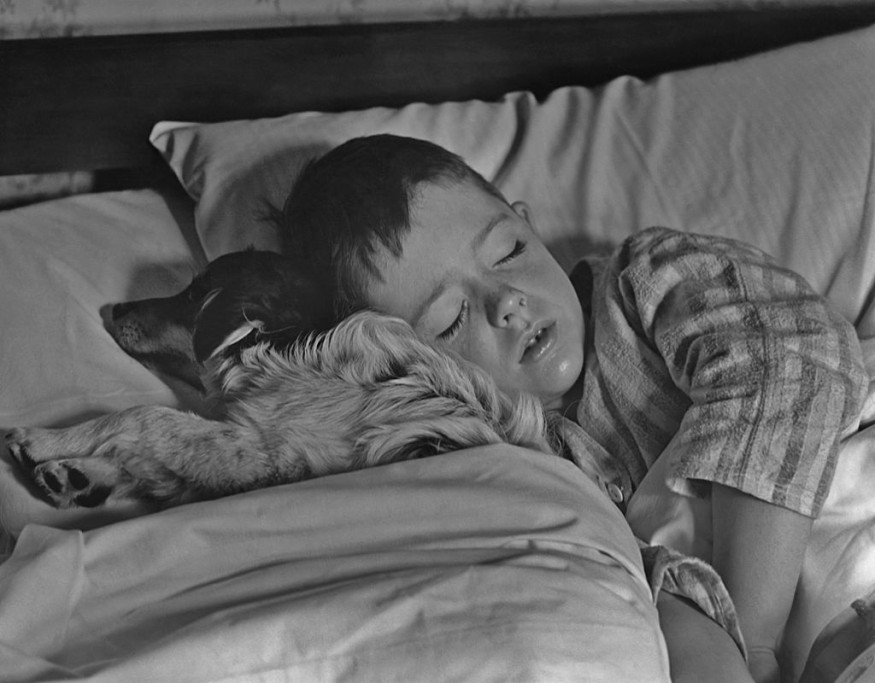Owning a pet completes one's household for a reason, almost the same reason as others has, companionship. Pets provide a sense of comfort and entertainment, reduce stress, and help cope with anxiety, for most people. Study suggests this is not only the case, pets also support their little humans at bedtime.
While it is your pet's nature to cheer you up on daylights, study suggests they are also excellent bed-sharers on nighttime.
Researchers from Concordia University in Montreal analyzed pet and human co-sleeping effects and how sharing a bed with pets improves sleep quality for children, taken in both subjective and objective assessment modality. Yes, for children, specifically 11 to 17 years old.

Effects of Co-sleeping with Pet to Kids
A few studies claim that sleeping with a pet can cause sleep disturbances due to its nocturnal nature, as it tends to move around a lot and make loud breathing noises. Some health professionals are against it if you were to improve one's sleep hygiene. However, on-hand experiences from pet owners describe bed-sharing with their pets provides comfort and relaxation.
188 children stratified into three co-sleeping groups: never, sometimes, and frequently co-sleeps with their pets, were provided with the same sleep dimensions regardless of frequency. According to data, one third of them frequently co-sleeps with pets in their bed.
Measurement of kids' brain waves, blood oxygen levels, heart rate, breathing, and eye and leg movements were recorded. Finally, to determine their rest-activity cycles, the children were asked to wear a wrist tracker and keep a diary of their sleep.
Researchers confirmed no enough evidence shows exactly what effect it has on children's sleep. However, they found out that those who does share a bed with their pet dog, cat or rabbit usually have had the 'highest overall subjective sleep quality' than those who prefers to sleep without them.
While for those non-cosleepers, it does not look like there is a statistically significant difference in their slumber and in fact showed similar sleep profiles to those who does. This data convinced researchers to examine dyadic measurement for future researches.
S.L. Triebenbacher believes children tend to see their pets as 'close friends' and seek comfort from them when trying to sleep. In addition, it might be that those who shares bed with their pets doesn't mind and are just less likely to be disturbed by their presence.
Also read : Understanding Your Dog Through Eye Contact
Quality of Slumber for Adults
Compared to young ones, it looks like adults prefer to take up all the space as much as they can. Authors of the study said having pets sleep with adults negatively affected their slumber quality, as they generally prefer to occupy larger space than children, but authors explained this may depend on some factors such as attachment to the pet, presence of anxiety, sleeping problems, consistency of sleep routine, or pet characteristics.
The Royal Society for the Protection of Birds (RSPB) reminds adult supervision is still necessary, especially to younger children who does not have enough understanding and recognition of their pet's behavior.
© 2026 NatureWorldNews.com All rights reserved. Do not reproduce without permission.





